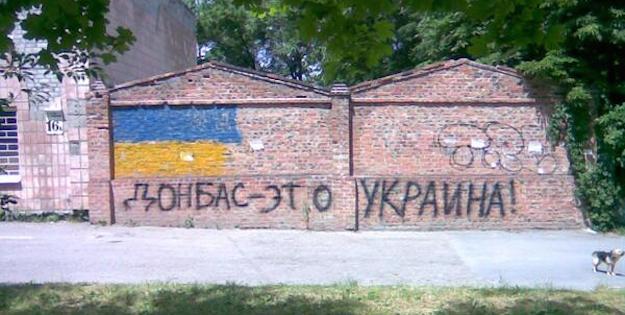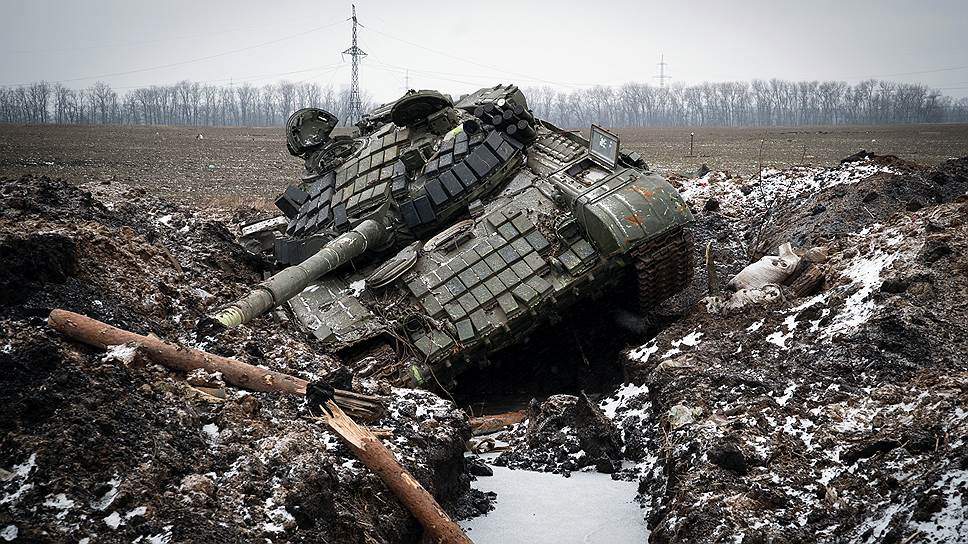Earlier this month, the governor of Orel Oblast, a Russian region adjoining Ukraine, called for a commission to promote the integration of the self-proclaimed Donbas republics, the LNR and the DNR, into the Russian Federation.
Then, a Moscow commentator picked up on the idea and urged other federal subjects of the Russian Federation to work to set the stage, first, for their recognition by the Kremlin as independent and, then, their inclusion as subjects of the Russian Federation.
Now, a candidate running for the governorship of Voronezh has called for his own region to take similar steps to promote those outcomes and organizing a new ideologically based campaign for other predominantly ethnic Russian regions to do the same to hasten the process.
It is of course possible that these various moves are arising spontaneously; but it is far more likely that they reflect a concerted effort by the Kremlin to promote the integration of the Donbas into the Russian Federation in ways that will remain below the radar screen of most Western governments.
Once these efforts get going and become too big to ignore, Moscow is likely to have created a sufficient number of what diplomats like to call “facts on the ground’ to prompt some in the West to conclude that they have no option but to support what Vladimir Putin is doing, however angry they may be about it.
However that may be, the latest move on this chessboard in Voronezh this week merits attention. Arkady Minakov, a professor at Voronezh State University who is running for governor as a Rodina Party candidate, declared that his region and many others are ready to “deepen mutual cooperation” with the Donbas “republics.”
“We consider the population of the LNR and DNR as friends and partners,” Minakov says; “they must not be left in isolation.” They are culturally, linguistically, historically, and economically closely tied with the Russian regions along their borders that are part of the Russian Federation.
There is even a European precedent for this, he says. In 2010, Luhansk and Rostov-na-Donu agreed to be part of the Euroregion Donbas; and two years later, Donetsk and Voronezh joined that cooperative region. Minakov says that “the events of 2014” changed things but in the direction of “stronger and more confident” relations among the four.
“Since 2014, Voronezh residents, including public and political organizations and business structures have expressed solidarity with the residents of the LDNR in various forms. They have begun not simply to work actively on the preservation and strengthening of the longstanding ties between Voronezh oblast and the Donbas but to actively develop them.”
Minakov says that “Voronezh at a minimum is ready for complex integration cooperation with the republics of Novorossiya. Such work must be carried out in a serious and systemic way with the support of social and political organizations, business structures and it would seem the powers that be.”
According to the Rodina gubernatorial candidate, the integration of these regions requires the dev elopement of “a new ideology which will be able to overcome the split of the Russian people. The LNR and DNR, like a large part of Ukraine … does not have any relationship even to what is called Malorossiya.”
“These corresponding territories have traditionally been viewed as part of the Russian Empire; they are part of the imperial state construction.” They are dominated by ethnic Russians, Russian culture and Russian self-consciousness, he says. And they should be viewed therefore as a single whole.
That requires dispensing with the Russophobic lines the Bolsheviks drew on the map and going back to the traditions of the Russian Empire. The ideology of that time was summed in Count Uvarov’s trinity – Orthodoxy, Autocracy, and Nationality. “Translated into present-day language one is speaking about the ideology of a strong, centralized and sovereign state.”
The Russians of the Donbas should be part of that state, and Voronezh can help, Minakov concludes.
Read More:
- ‘Russia has begun the integration of the Donbas’ – at the regional level
- Russian puppet “LNR” opens “consulate” in Sicily and other overlooked stories from Donbas
- Occupied Donbas changes phone code to Russian +7 and other neglected stories from eastern Ukraine
- Putin seized Crimea with regular army but outsourced action in Donbas
- Hot war still on in Ukraine’s Donbas, and it’s far from frozen conflict
- Poroshenko redefines Donbas fighting so Kyiv can call things by their proper names
- Ukrainian OSINT sleuths release largest existing database of evidence of Russian aggression in Ukraine
- Search Eastern Ukraine statelets “effectively controlled” by Russia – PACE resolution
- Fears of radioactive disaster as Russian proxies plan to flood nuclear test site in Donbas
- Blacksmith, legionnaire, brother of fallen Cyborg: 3 soldiers of Donbas Battalion fighting close to home
- A student from Ukraine’s Donbas who lived through war
- Will a UN peacekeeping operation finally unfold in the occupied Donbas?
- “Visitors” from Russia pushing out Donbas locals and taking over housing
- Russian participation in the war in Donbas: evidence from 2017






